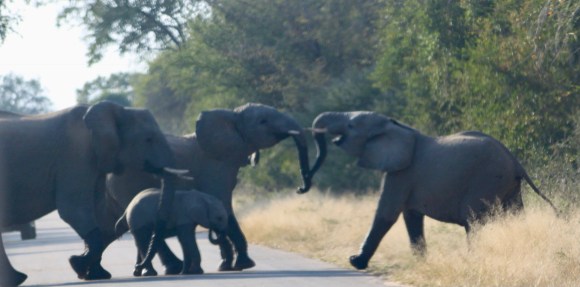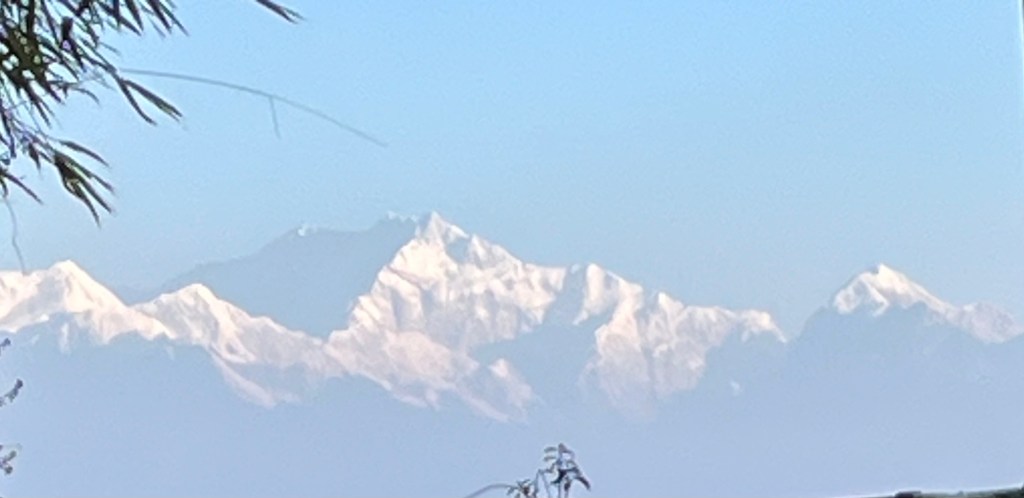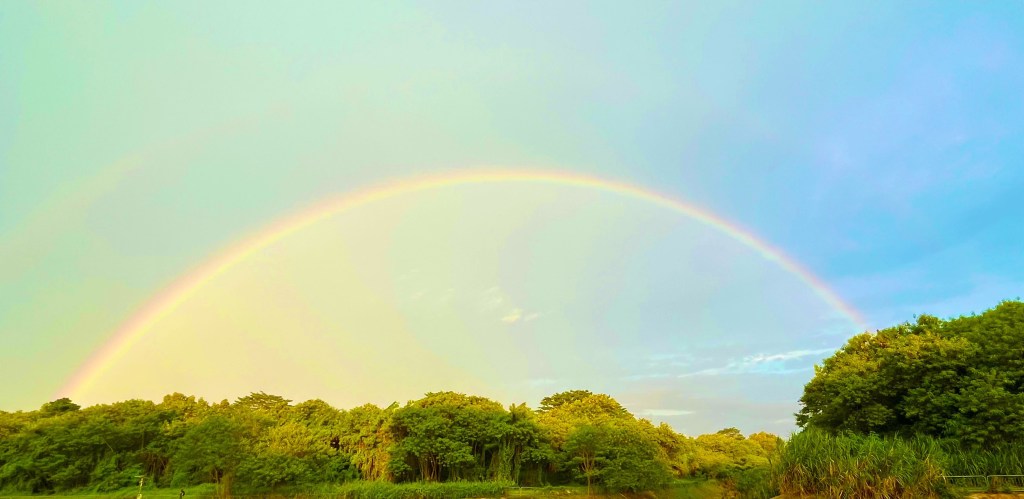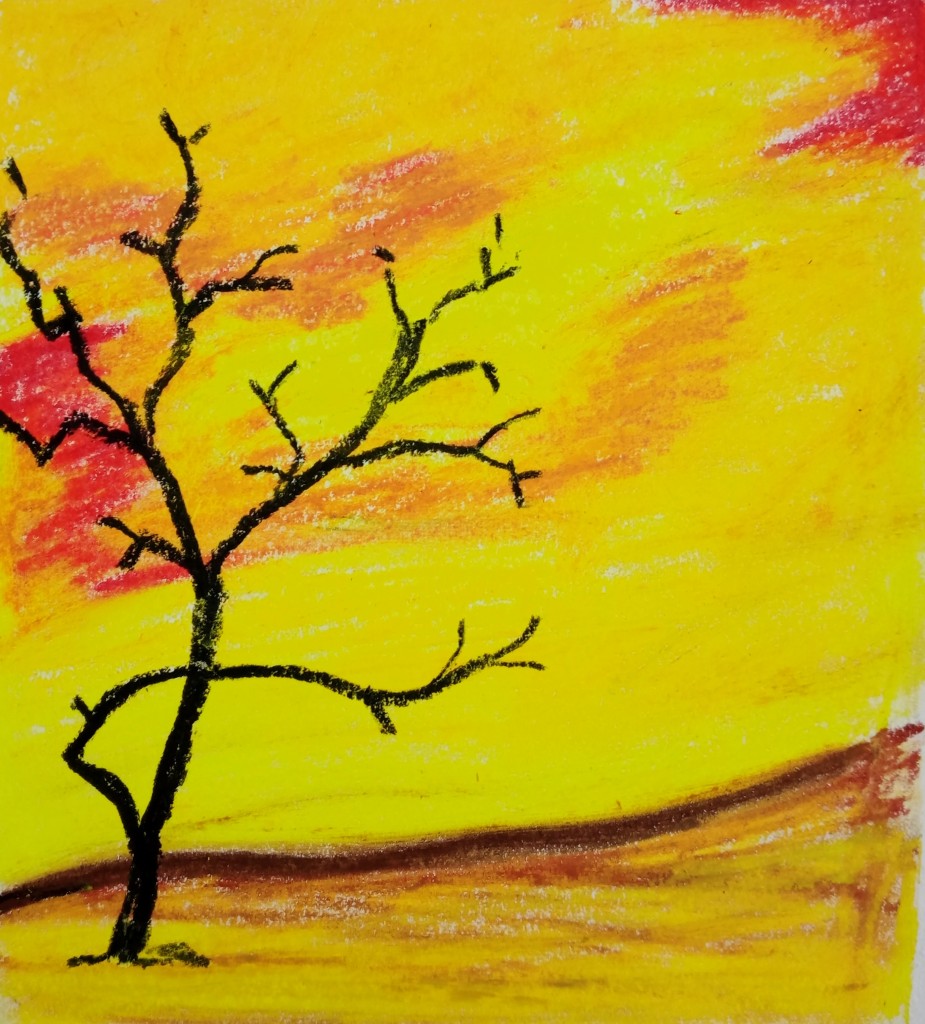By Sarpreet Kaur
The Call
“Hello”
“Hello, beta[1]. How are you?” a gentle voice of my mother came from the other end.
I started crying.
“Why are you crying? Everything alright na?”
“Maa, you know. Nothing is right. I can’t live like this anymore.” I answered through muffled sobs.
“Don’t you dare to say that word again. If your father hears, you know what will happen. Give it time. It is going to be alright.” she answered with an air of finality.
“How is Ajay?” she asked starting the ‘so-called normal conversation’.
“He is well.” I played along.
“Had your food?” she asked genuinely concerned.
“Yes.”
“How’s the weather nowadays?” she was out of things to talk about now.
“It’s better.” I replied
She concluded the call.
“Never even think about it and take care there is a viral fever around.”
Diary
Hey Diary. My name is Rumi. I am 29 years old. I work with a software company. I am married to a software engineer for the last three years. And I am sad. I have been sad for so long that I think I was born this way but I know that can’t be. I used to be happy. Every weekend I get a call from my mother. It is strictly weekends only as she doesn’t want to be an intrusion in her daughter’s happy married life. After every phone call, my heart shatters into million pieces and the shackles around my wrists tighten a little more. I thought my mother would be the one to have the key to these locks but ironically she pleaded with me to hide the shackles and even forced me to promise never to talk about it.
I know I am too old to be writing in a diary but I don’t have anyone to talk to. No one listens to me anymore. And a few people who listen, they judge me. They judge me at that very instant when I say ‘the word’. The same word that my mother asked me to never mention.
Divorce
I want to shout “I hate my life. I don’t want to live with him anymore. I want a divorce.”
But the voice never comes out. It trails off somewhere. Somewhere dark. Somewhere deep. Somewhere within me.
The Call
“Don’t take it to heart. Stop finding meaning in everything. You have a job. You have a house. You have a husband,” my mother continued the next weekend when she heard a weak hello from my side.
Then came the questions
“Does Ajay ever hit you?”
“No.”
“Does he stops you from working?”
“No.”
“Does he ask you to do something that you don’t want to?”
“No.”
“Then Rumi I don’t understand what is the problem?”
Silence from my side. She reiterated
“Tell me. What do you want?”
“Respect Maa. I want respect.” I answered surprising even myself.
“Huh.” She coughed a sly laughter.
And the line went dead…..
I guess my father must have come in the room.
Diary
“Is this the only way to live?” Tell me diary Is it? I will tell you what happened at lunch today.
Ajay came for lunch.
“Please set the table.” he said while washing his hands.
“The table is already set. I am just coming.” I replied from the kitchen.
When I came back, I saw that he had already started eating. I just stood there with empty plate in my hand. He was too busy on his phone to notice me.
Today is Friday and my mother is going to call again in a short while. The time of call is always between lunch and evening tea. My father is sleeping then you see. And she is going to ask, “Had good lunch? How is he?”
I want to tell her the truth but how will I? How will I tell her that he started eating without waiting for me? How can I explain it to her that he should have waited for me? How can I explain this to my mother? That mother who thinks that first the husband should eat. That mother who takes pride in waiting for her husband to finish the food before picking up her own plate. How can I explain to her when she thinks this is normal? How can I tell her that her normal is not my normal? I want to shout at her and ask her why was she so keen on giving me education? Education that put funny ideas like gender equality in my mind. That evil education that taught me that husband and wife should eat together. Why mother? Why? I also want to tell her about all other moments. All those moments that she thinks is normal and is not a big deal. But mother it is. It is a big deal when he forgets to introduce me to his colleagues. It is a big deal when he cancels movie plans without checking with me. It is a big deal when he is broodingly sitting on the bed by my side but when his friend calls he laughs, shares and smiles.
The Call
“You are still thinking about it and ruining your day. Why can’t you talk happily?” she was disappointed after listening to the same sad daughter voice.
“I am not happy. What part of it are you not able to understand?” I shouted and immediately realised it was impolite and mean. She doesn’t deserve this.
“I am sorry Maa. I really am.”
“It’s okay beta. Just talk to him once. Sometimes the most complex problems have the simplest solutions.”
“Yes Maa.”
Diary
I liked my mother’s advice. So I thought of giving it a go. I made tea. Gave one cup to him and took a sip from mine.
“How was your day?” I initiated
“It was good. How was your day?” he asked
“It was good.” I replied
A long silence.…….
Was it few second or few minutes. I can’t tell. But I can tell that it felt like a very, very, long time.
He made an effort this time —
“How is your new project coming along at work?”
“It’s going great. How are your new clients?”
“They are good.”
A long silence again………..
“We have to go to a wedding this weekend at your aunt’s place.” I informed
“Yes we have to.”
At last we picked our phones, took a sigh of relief and scrolled our evening away.
Diary today I realised something unusual. It is not only him. It’s me too. I also didn’t have anything to ask him. I tried to think. I tried to make a conversation. But my mind was blank. We don’t have anything in common nowadays. I wonder did he also rack his brains to find something to talk about? Was he also as tongue tied as I was?
The Call
“Beta divorcees are given no respect in society. You want respect na? Do you think divorcing will give you respect?” My mother replied in a hushed tone when I again committed the big mistake of saying the forbidden word.
“I know Maa.”
“Food done?”
“Yes Maa.”
“How’s health?”
“Good Maa.”
“Take care. Your father just came.”
“Bye maa.”
Diary
We went for dinner with our friends tonight. It was a good dinner — a fancy restaurant, soft lighting and calm ambience. We dressed up putting in all the efforts we could. We laughed with our friends reminiscing old times, had a good feast but I still came back with a heavy heart. Diary is there some problem with me? Is my mother right? Do I expect too much? I wanted him to complement me on my dress. I wanted him to hold my hand when we entered the restaurant. I wanted him to steal a few glances of my sweet neckline. I wanted a bigger connection diary.
Should I be happy and a little contented that we at least went for dinner?
Is it me?
Will it never be enough for me?
Do I want too much?
The Call
“Maa Is everything alright? Is papa fine?” It was unusual of her to call during a weekday and that too after 8 pm.
“Yes. Yes all good. My sister, your maasi, came today and she gave a wonderful solution to your problem.”
“What Maa?” I asked and instantly regretted.
“Have a kid and everything will be alright beta. Just have a kid. The relationship will improve and you will have a happy family then. Being a mother is the most rewarding thing. You will get all the happiness and respect that you seek from your kid then.”
“Like you are getting from me Maa.” I snapped and then realised that Ajay was looking directly at me. I was so startled when I saw my mother’s call at this hour that I forgot to get up and go out in the balcony like I usually do. I guess, he must have heard what she just said. My phone’s volume is always on blast and clearly audible to the person sitting next to me.
“Shit!” I muttered.
“Okay Maa. Good night now.”
No Mother No Diary Just Us
He looked at me. I looked at him. For the first time I could see that he wanted to talk. For the first time I was eager to talk to him. And we did. We talked. He talked keeping his ego aside and I talked keeping my self-respect at bay.
“Let’s get divorce.” he blurted out.
After a brief pause, he continued —
“I don’t want to bring a new life in this world. It’s a sad world. We made it sad. I. Sorry. I made you sad. You deserve happiness. I am not a bad person.”
He produced these bits and pieces. His eyes cast down, he played nervously with his ring finger.
“I am sorry. Really. You deserve all the happiness too. I am also not bad. We are…,”
I choked
“We are just different.” he completed.
That day he gave me the key to my shackles. Then he stretched his own arms in front of me and for the very first time in our whole married life I saw a big chain around his wrists holding on to an even bigger lock. Was I too blind till date to see his shackles? And then I felt something in my back pocket. It was the key to his lock. I smiled and handed it over.
Diary
Sometimes it just doesn’t work. There isn’t always a ‘Victim’ and a ‘Devil’ in a marriage. Sometimes it’s just a bad marriage. Sometimes it just doesn’t work. Today I give priority to happiness rather than some worldly opinions. If that makes me selfish then – Yes! I am selfish. I am selfishly happy.
[1] Child
Sarpeet Kaur is a writer based out of Mayabunder, Andaman and Nicobar Islands. She has worked on many projects dealing with the islands. She likes to capture the colourful cultures of India, enigmatic human emotions and flawless nature in her words and lock them forever into bundles of pages.
PLEASE NOTE: ARTICLES CAN ONLY BE REPRODUCED IN OTHER SITES WITH DUE ACKNOWLEDGEMENT TO BORDERLESS JOURNAL.
Click here to access the Borderless anthology, Monalisa No Longer Smiles
Click here to access Monalisa No Longer Smiles on Kindle Amazon International

















